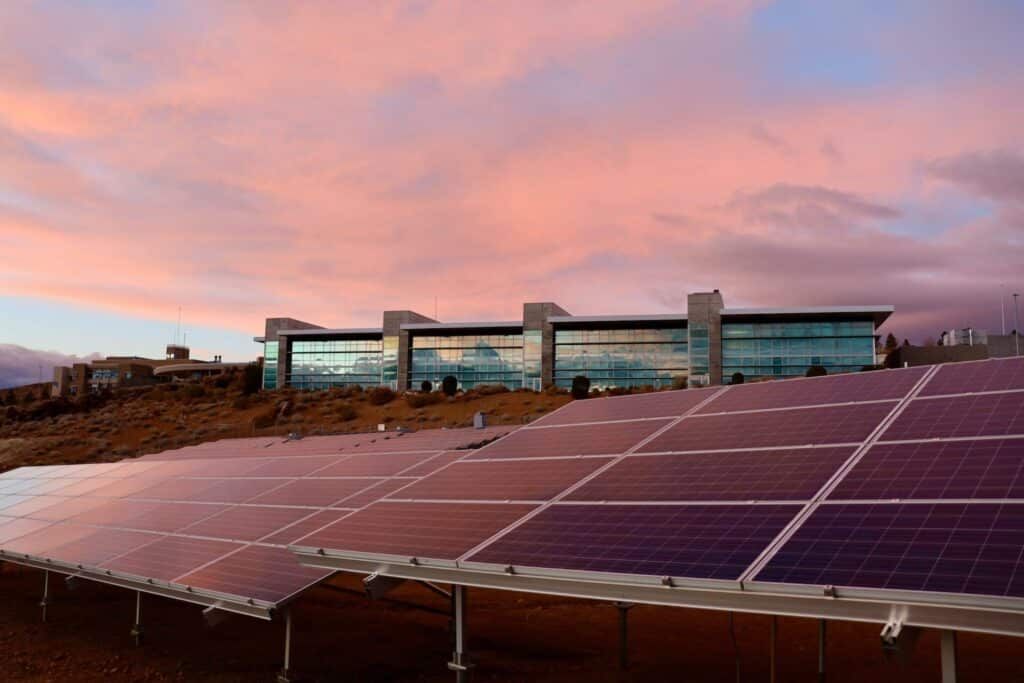The process is what matters
By Jessica Lovering | February 1, 2023
 Photo by Manny Becerra on Unsplash
Photo by Manny Becerra on Unsplash
This article is part of a series of commentaries on permitting reform. Read the rest here.
Depending on the headlines you read last year, the failure of West Virginia Sen. Joe Manchin’s permitting reform bill was either a triumph for environmental justice or a progressive mistake that could slow reductions of greenhouse gas emissions. Several finger-wagging op-eds argued that progressives should have compromised with Manchin because permitting reform is necessary for reducing air pollution and stabilizing energy prices to advance environmental justice. But such a technocratic view misstates what environmental justice also entails: The process is the point.
Ensuring that any type of energy project is environmentally sound just doesn’t only mean that the benefits outweigh the harms or that the benefits and risks are fairly distributed. It also calls on project decision makers to meaningfully include all people affected by the proposed project. Progressives opposed Manchin’s version of permitting reform because they felt the changes would have excluded affected parties from federal decision-making processes. The agreement between Democratic leadership and Manchin to advance his version of permitting reform was itself reached behind closed doors, without the inclusion of House members—many of whom had toured the country for months to learn from communities facing pollution from industrial projects and to develop proposals for equitable permitting reform.
Centrist climate advocates argued that permitting reform is critical to implementation of the Inflation Reduction Act’s many incentives for clean energy projects. Several studies have highlighted the challenges involved in permitting large-scale energy projects, but the root causes of these challenges are nuanced and differ by energy source. While much of the pro-permitting reform rhetoric has cast environmental groups that oppose wind and solar projects in the courts as the primary barriers to adding new clean energy to the grid, the bigger obstacle is the difficulty of building new, long-distance transmission projects, which suffer from a complicated web of overlapping authorities and redundant oversight.
You can find examples of NIMBYs opposing clean energy projects, but you can also identify many more instances of community groups coming together to oppose harmful, polluting facilities in their neighborhoods. A rushed attempt at permitting reform may actually impede the adoption of clean energy and limit the ability of communities to stop fossil fuel projects that would poison their environment. That’s why my organization voiced support for the Inflation Reduction Act as enacted, without Senator Manchin’s permitting provisions, and called for the adoption of permitting processes that result in new clean energy while respecting community values.
Local opposition to renewable energy projects could slow the clean energy transition, but the solution isn’t some sort of top-down regime to fast-track projects. Expediting energy construction only erodes support for clean energy and creates a backlash to climate action. For example, research by Professor Leah Stokes at the University of California, Santa Barbara, found that the political parties responsible for subsidies for wind energy suffer electoral losses in precincts closest to operating wind farms.
Future clean energy projects, whether of renewable or nuclear energy, will need to seek and incorporate early and meaningful engagement with host communities. Securing local support is not an olive branch of goodwill, but a key component of project success. To take an example from nuclear waste management, Sweden and Finland were able to site a permanent repository for spent nuclear fuel only after involving prospective host communities in the decision-making process and agreeing to project co-benefits—not by federal fiat. If clean energy projects are to be built any faster, it’s necessary to look to the many examples of successful projects that already exist. There’s no need to adopt the unjust business practices of polluting sectors.
Together, we make the world safer.
The Bulletin elevates expert voices above the noise. But as an independent nonprofit organization, our operations depend on the support of readers like you. Help us continue to deliver quality journalism that holds leaders accountable. Your support of our work at any level is important. In return, we promise our coverage will be understandable, influential, vigilant, solution-oriented, and fair-minded. Together we can make a difference.
















By Andrew Dessler
Clean energy is the future. Permitting reform is how to get there
By Sanjay Patnaik, Rayan Sud
How to modernize permitting for a low-carbon economy
By Jessica Lovering
The process is what matters
By Jamie Pleune
Get rid of bottlenecks—not environmental reviews
By Dustin Mulvaney
Want clean energy, fast? ‘Streamlining’ environmental reviews could have the opposite effect
By Jamie Shinn, Laura Kuhl
What the Mountain Valley Pipeline debacle says about energy permitting reform and ‘just transitions’
By Dustin Mulvaney
Permitting reform is back from the dead. Will lawmakers sacrifice America’s public lands to the fossil fuel industry?